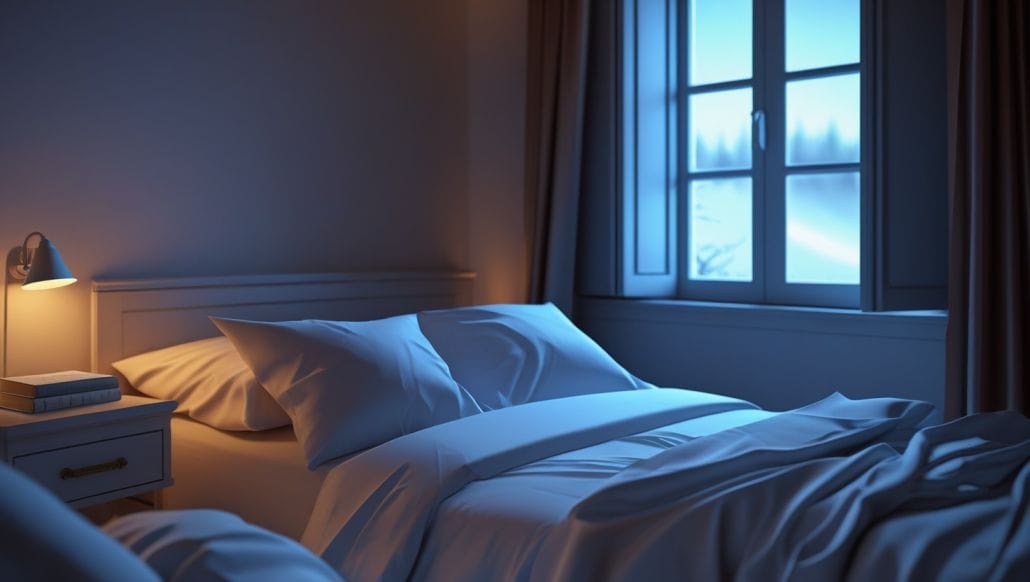What to Do in the Final 60 Minutes Before Bed
Unlock sharper mornings and faster sleep with science-backed evening habits. Master your final hour and build better energy, focus, and recovery.

What if the real secret to deeper, more energizing sleep wasn’t in a supplement or fancy gadget—but in the last 60 minutes of your day? You don't need a total lifestyle reboot to sleep better.
You just need the right final moves. By shaping your evening with purpose, you set the stage for faster sleep, sharper mornings, and lasting health gains. Let’s unlock it together.
Set the Stage for Shutdown
Your brain is wired for rhythms, not chaos. In the hour before bed, predictability matters more than you think.
A chaotic or overstimulating evening ramps up cortisol, the stress hormone that keeps you alert. If you want real rest, you have to deliberately pump the brakes.
First move: close the day with finality. Shut down your laptop. Answer no more texts.
Review your to-do list, write tomorrow’s first three tasks, and then mentally clock out. Leaving things open-ended keeps your brain in problem-solving mode long after your head hits the pillow.
Next, shape your environment. Start dimming lights about 60 minutes out. Lower brightness on your phone if you absolutely must use it.
Aim for warm light sources like table lamps or smart bulbs on a sunset setting. Studies show dim lighting alone can increase natural melatonin production by up to 50%.
It’s not complicated. You’re signaling to your body: “The day is done. It's time to power down.”

Move with Intention
Sedentary all day? Stressed out? Your body doesn't just "turn off" when you want it to. You have to give it a bridge from activity to rest.
Gentle movement works because it burns off residual adrenaline without triggering a second wind. Think slow, deliberate, low-heart-rate actions:
- Stretch out your hip flexors and shoulders to counteract sitting all day.
- Walk outside for 5–10 minutes, breathing deeply, letting your senses adjust to the natural world.
- Try a simple yoga flow focused on forward folds, child's pose, and spinal twists—positions that naturally downshift the nervous system.
Want to go even further? Stack in 2 minutes of box breathing: inhale for 4 seconds, hold for 4, exhale for 4, hold for 4. Rinse, repeat. Breath control flips your system from “fight or flight” to “rest and digest” faster than any supplement.
Sleep isn't just mental. Your body has to be in on the plan too.
Choose Your Last Inputs Wisely
What you put into your brain before bed echoes into your sleep cycles.
If the last thing you see is breaking news or a TikTok black hole, your mind stays on high alert. It's not about judgment—it’s straight neurology. High-sensation content keeps your limbic system firing, making true rest a harder sell.
Instead, swap high-stimulus for low-stimulus inputs:
- Fiction books that lean light, immersive, and non-triggering
- Slow-burn podcasts with calming voices, preferably topics you find soothing but not addictive
- Gratitude journaling, where you list three wins from the day—training your brain to associate nighttime with safety and satisfaction
This shift doesn't just make you "feel good." It actually primes your brain to release sleep-inducing neurotransmitters faster. The right mental diet creates a faster, deeper descent into real sleep stages.
Regulate Your Core Temperature
Temperature isn't just a comfort thing—it's a biological trigger for sleep onset.
Your core body temperature naturally drops before bed, signaling your brain it's time for sleep. You can hack that natural process by intentionally raising skin temperature slightly, then letting it cool.
One of the simplest, most science-backed strategies: a warm shower or bath about 45–60 minutes before lights out. Not scalding hot—just comfortably warm.
As you cool afterward, your internal thermostat kicks into sleep mode faster and more efficiently.
Also, dial in your sleep environment:
- Keep your room cool, ideally between 60–67°F (15–19°C).
- Use lightweight, breathable bedding.
- Ditch heavy pajamas. Let your body breathe.
If you’ve ever tossed and turned because you felt “too hot to sleep,” you already know: when temperature works against you, no mindset trick is going to save your night.
Get Ruthless About Routine
Consistency isn’t sexy, but it's everything.
The final 60 minutes before bed should eventually feel almost automatic. That’s when your body stops questioning, “Should we stay alert?” and starts understanding, “Oh, it’s sleep time.”
Here's what a simple real-world flow could look like:
- 9:00 PM: Lights dimmed, devices off or on night mode
- 9:10 PM: Gentle stretching or walk
- 9:30 PM: Warm shower
- 9:45 PM: Fiction reading in bed under low light
- 10:00 PM: Lights fully out
You don’t need to time it to the minute. You just need the pattern to stay roughly the same every night. Sleep researchers call this "sleep stability," and it’s been linked to better mood, cognition, and physical recovery across the board.
When you nail the last hour, your body starts sleeping like it actually wants to—not like it’s being forced.
Final Thoughts
The final 60 minutes before bed are a game-changer. If you create a pattern of slowing down—mentally, physically, and environmentally—you won’t have to "fight" for better sleep anymore. It’ll happen because you trained your system to expect it.
Start small tonight. One shift. Dim the lights. Take a short walk. Turn off the noise early. Then stack one more habit tomorrow.
Your energy, focus, and resilience tomorrow start in the hour before you close your eyes tonight. Don’t leave it to chance. Take control—and get the kind of sleep that powers a better life. Start now. Tonight is the first win.




